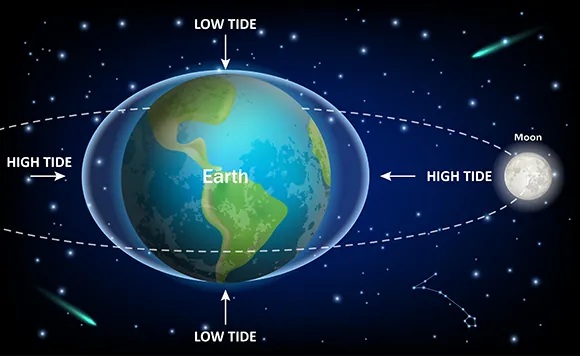
Shocking Discovery: Melting Glaciers Are Making Our Days Longer!
2025-01-11
Author: Daniel
You read that right! In a remarkable twist of fate, recent scientific studies have revealed a stunning consequence of climate change: as glaciers melt and sea levels rise, the very rotation of Earth is slowing down, leading to longer days. This groundbreaking research shifts the narrative of how we understand the mechanics behind Earth’s rotation, previously attributed mainly to the Moon and our planet's core dynamics.
An Unexpected Turn in Timekeeping
For millennia, we’ve relied on an Earth day consisting of 24 hours, which translates to 86,400 seconds. Yet, this constant is anything but steady! Earth's rotation is influenced by a variety of factors, including gravitational interactions and tidal forces. Over the last half billion years, factors like sea tides have gradually altered our planet's spin.
But all this is about to get a lot more complicated. The modern demand for precision timekeeping has pushed scientists to adopt atomic clocks as a new standard, a decision stemming from the unpredictable nature of Earth’s rotation. Since 1972, a total of 27 leap seconds have been added to ensure synchronization between atomic timekeeping and Earth’s rotational time.
Climate Change: A Game Changer for Earth's Rotation
Until recently, experts believed that ocean tides were the primary force affecting Earth's rotation. However, new research highlights that human-made climate change is also playing a significant role. The melting glaciers in regions like Greenland and Antarctica are causing mass redistribution across the planet, which alters rotational speeds.
As meltwater moves toward the equatorial regions, it adds weight there, causing Earth's spin to slow. Benedikt Soja, one of the researchers behind this discovery, clarified, “It’s akin to a figure skater extending their arms during a spin—slowing down the rotation due to shifts in mass distribution.”
The Numbers Game
Through advanced techniques like interferometry and millisecond-precise GPS measurements, scientists have documented that Earth’s days have lengthened by an average of 0.8 milliseconds since 1900. Projections indicate that if current trends continue, days could extend by approximately 2.62 milliseconds by the end of the 21st century!
These findings underscore the urgency surrounding climate action. Should we achieve significant reductions in greenhouse gas emissions, we might only see an increase of about one millisecond by 2100, proving that our choices have real consequences—even down to how long our days last.
A Ticking Clock
Interestingly, while glacier melting slows Earth's rotation, movement in the liquid outer core appears to speed up the surface rotation, creating a delicate balance. This mixed effect could lead to an unprecedented situation: by 2029, we might have to subtract a second from one of our days—a striking contrast to the leap seconds we have been accustomed to!
Experts warn that even the mere misalignment of one second in global timekeeping could wreak havoc on our global communication systems and financial markets. As we race against time to navigate this climate crisis, we must also prepare for the potential disruptions it poses—both in our environment and our day-to-day lives.
In conclusion, the revelation that melting glaciers are making our days longer is a sobering reminder of the far-reaching impacts of climate change. It's not just about the environment; it's about how we measure time and the fabric of our daily lives. Let's pay attention because the clock is ticking—both literally and figuratively!
 Brasil (PT)
Brasil (PT)
 Canada (EN)
Canada (EN)
 Chile (ES)
Chile (ES)
 Česko (CS)
Česko (CS)
 대한민국 (KO)
대한민국 (KO)
 España (ES)
España (ES)
 France (FR)
France (FR)
 Hong Kong (EN)
Hong Kong (EN)
 Italia (IT)
Italia (IT)
 日本 (JA)
日本 (JA)
 Magyarország (HU)
Magyarország (HU)
 Norge (NO)
Norge (NO)
 Polska (PL)
Polska (PL)
 Schweiz (DE)
Schweiz (DE)
 Singapore (EN)
Singapore (EN)
 Sverige (SV)
Sverige (SV)
 Suomi (FI)
Suomi (FI)
 Türkiye (TR)
Türkiye (TR)
 الإمارات العربية المتحدة (AR)
الإمارات العربية المتحدة (AR)